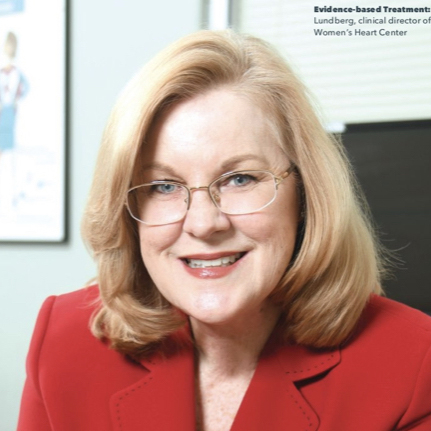WIC Leadership Workshop: Myths and Truths of Career Transitions Panel
CAREER DEVELOPMENT | Garima Sharma, MD, FACC; Tina Shah, MBBS, FACC; and Gina Lundberg, MD, FACC share myths and truths of career transitions in this informative feature.
Garima Sharma, MD, FACC - Tips for Career Advancement in an Academic Institution as an Early Career

- Build a network of mentors: Get on the calendars of multiple mentors and do it in advance. It is always good to send them a focused agenda ahead of time. Be sure to follow up after the meeting with a quick summary. Many mentors have several other mentees and they feel valued if you show respect for their time and commitment. Send them an email about 2-3 weeks later to remind them what has been accomplished.
- Build a network of collaborators and sponsors: Building a support system in a new place can be daunting. You do not need to find collaborators within your Division. In fact, sometimes that is tough to achieve. However, you can succeed by building a network outside your core Division.
- ACC/AHA/Professional Organizations' Support: Use your national/regional recognition as your platform. Use your national papers as a driver for your agenda in your institutions.
- Self-Reflection: Approach your career goals with honesty and integrity. You will never accomplish everything you set yourself out to do. However, learning from your mistakes will make you wiser. Always take the learning from poor outcomes. Self-reflection is a good teacher.
- Build and curate your scientific portfolio: Keep a copy of your CV and cover letter in your Drop Box or on your desktop and every time you publish, speak at national seminar, grand rounds, you should update it.
- Build a 5-year mission statement: Having a mission, vision and 5-year statement is important. You will be surprised with what you have achieved in a short time. Build a clear statement of purpose, usually something that has your ambition and mission tied together:
- Mission: "I want to be the leading clinician researcher in the field of xxxxx in the next 5 years".
- Vision/Objectives: "I will focus on research in the field of xx. I will build a practice in the field of xxx.
- Specific Aims: "I will obtain a grant and write papers on xxx". I will educate by developing curriculum in xxxxx. I will advance the field nationally but putting together consensus statements in xxxxxx"
- Polite vs Honest: When you face a choice between being polite and being honest, err on the side of the truth. I have found that it's better to be disliked and respected than to be liked but disrespected. In the long run, the people who we trust the most have the courage to be sincere.
- Fail Forward: You will fail a lot. But learn from it and show yourself some grace. What people see is the successful you, they don't see how you got there. Be grateful and stay positive. Nothing is life is as good or as bad as it seems.
Tina Shah, MBBS, FACC – Pearls and Tips Around Career Change

It is natural to feel a lot of anxiety when you are in the midst of a career change/transition. As smart, ambitious cardiologists, we have invested years of time, education and work building a profile. Being at a certain position for a few years, we gain knowledge, expertise and a professional clout within the organization. Walking away from that and into something completely new and different can be very unsettling, but feeling uncomfortable is also a key to success.
Below are some pearls/tips from my recent career transition:
- Always be prepared for a change. Work hard in your current job and grab as many different opportunities you can to broaden your skill set.
- Give yourself enough time to prepare before you make the transition. Don't feel rushed to make a choice. Look at all the options and take your time to ensure a smooth transition for you and your family.
- Take time to introspect and ask yourself these important questions:
- How satisfied are you with your current career?
- What do you genuinely care about? What are your values? Prioritize them and look for a career where your values are aligned with your new organization. Some values important to you could be:
- Work-life balance
- Professional growth
- Learning new skills
- Leadership opportunities
- Service/helping others
- Job security
- Feeling valued
- Greater organizational impact and influence
- Do you feel prepared to make a career change? Are there any skills you need to acquire before you make the change?
- Use your network of friend/colleagues/ACC to reach out to as many people as you can to explore options. Don't be shy to ask for help.
- Be bold in marketing yourself. You are amazing and you should let them know that! Highlight your strengths and don't be shy to do that. Promote yourself and your work.
- Probe all potential employers to gauge if they value your achievements and support your vision and growth.
Gina Lundberg, MD, FACC - #ACCWIC Leadership Pearls

- Have a higher source that gives purpose and meaning to your life. See "opportunities and blessings" in everything, especially changes.
- Have meaningful relationships with your spouse/partner and family. They will support you when you have doubts and need encouragement.
- Have mentors for encouragement, experience and wisdom.
- Enjoy relationships with your patients, coworkers, peers. You spend more time with them than your family!!
- Do not link your value to your income, productivity, recognition or awards. Find your own measure for success.
- Have activities and friends outside of medicine. Get involved in church, travel, hobbies, sports, and keep learning nonmedical things! These things make you human and have purpose and benefits for life.
- Early career is learning time- learn business side, marketing and promoting yourself, building network, adding value to team – Be open, eager & humble.
- Mid-career is develop niche, skills, reputation and start to become leader – confidence, network, collaborate.
- Late career is building legacy through mentoring & promoting others – wise, experienced & still humble.